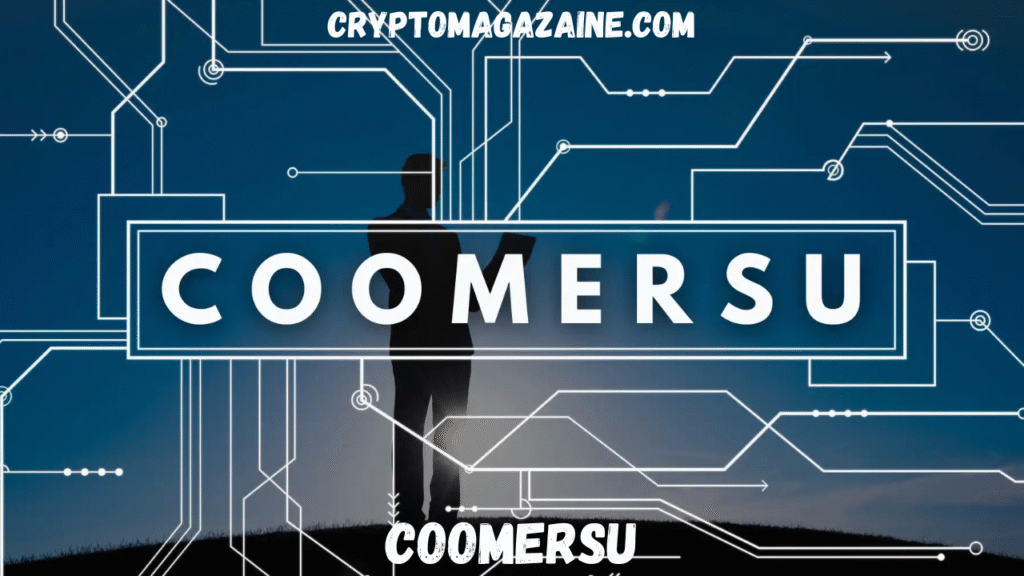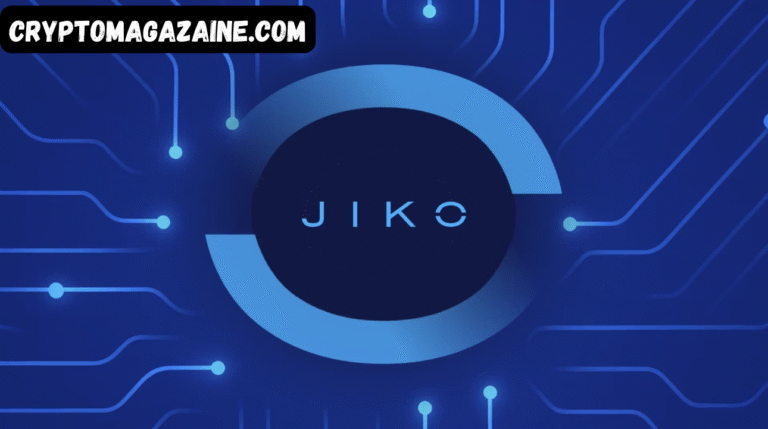Coomersu is a relatively new term that has emerged within online communities to describe a growing cultural and behavioral phenomenon shaped by the digital age, particularly by internet subcultures, social media, and the broader world of digital consumption. The word “coomersu” is often linked to excessive digital indulgence, emotional dependency on online gratification, and the transformation of identity in an era where people’s lives are increasingly intertwined with virtual realities. It represents not just an individual behavior but also a reflection of society’s collective mindset, influenced by technology, entertainment, and the endless flow of visual stimulation. At its core, coomersu symbolizes the struggle between authentic human emotion and the artificial satisfaction derived from digital content. The rise of coomersu mirrors how people are evolving in response to constant online connectivity and the quest for validation through screens.
Origins and Evolution of Coomers

The concept of coomersu did not emerge overnight but evolved gradually as internet culture deepened and diversified. Early digital communities often used humor and memes to describe behaviors associated with overindulgence in online fantasies or entertainment, but over time, the term coomersu took on deeper psychological and cultural significance. It grew from an internet joke into a metaphor for the modern human condition, where boundaries between reality and virtual life blur. The rise of smartphones, instant media platforms, and digital escapism provided the perfect environment for coomersu to thrive. People began to spend more hours online, consuming content not just for information but for emotional satisfaction. Coomersu became a symbol of how people’s desires, habits, and perceptions have been shaped by the constant digital feedback loop that encourages pleasure-seeking behavior over real connection.
Psychological Aspects of Coomersu
At a psychological level, coomersu represents an emotional dependency that develops when individuals find themselves increasingly drawn to digital gratification instead of real-life experiences. This phenomenon can be compared to other forms of behavioral addiction, where instant rewards replace meaningful engagement. The coomersu mindset often stems from loneliness, stress, or a desire for escapism in a world that feels increasingly overwhelming and disconnected. The constant bombardment of visual content online stimulates dopamine responses in the brain, creating a cycle of craving and temporary relief that encourages repetitive consumption. Over time, this can dull emotional depth and reduce one’s ability to find satisfaction in offline relationships or simple experiences. Coomersu, therefore, serves as a lens through which we can understand the psychological impact of the digital age on human behavior, self-perception, and emotional well-being.
Coomersu and Digital Culture

Digital culture has played a central role in normalizing coomersu behavior. Platforms like social media, streaming services, and even gaming environments encourage constant engagement by providing endless streams of content tailored to individual preferences. This personalized consumption model reinforces the coomersu mindset by making it easy to lose oneself in a digital echo chamber. Coomersu thrives in spaces where algorithms feed the user more of what they already crave, creating an illusion of satisfaction that is both immediate and hollow. This culture of constant stimulation has also influenced how people present themselves online, prioritizing appearance, attention, and approval over authenticity. The coomersu effect is visible in how users chase trends, emulate digital idols, and measure their worth through likes, comments, and followers, reinforcing a cycle of digital dependency.
Social and Cultural Implications of Coomersu
The social implications of coomersu extend beyond individual habits and reach into the collective mindset of society. In many ways, coomersu reflects the values of a culture that prioritizes convenience, pleasure, and instant results. It has reshaped relationships, communication styles, and even moral perceptions by blurring lines between fantasy and reality. Coomersu culture often celebrates indulgence while subtly undermining self-discipline and reflection. This shift can be seen in the way modern entertainment, advertising, and social media campaigns exploit human emotions to sustain engagement. Society now faces the challenge of balancing technological progress with the preservation of emotional authenticity and ethical awareness. Coomersu reveals both the power and the danger of digital connectivity: it unites people globally but also isolates them emotionally through the illusion of connection without depth.
The Economic Side of Coomersu

Coomersu also has an economic dimension, as digital platforms, advertisers, and creators profit immensely from the behaviors associated with this phenomenon. The attention economy thrives on users who continually consume, react, and share. Every click, like, or view generates value for corporations while deepening the user’s engagement loop. This creates a paradox where the coomersu mindset is not just an outcome of digital culture but a deliberate design feature of the modern internet. Businesses exploit psychological triggers to keep users scrolling, shopping, or streaming, leading to what some call the “commodification of attention.” Coomersu therefore reveals the intersection of technology, psychology, and economics, illustrating how human behavior can be molded into predictable patterns that benefit commercial interests at the expense of personal balance and self-awareness.
Coomersu and the Search for Identity
In the age of digital media, identity has become fluid and performative, and the coomersu mindset captures this transformation vividly. People increasingly construct versions of themselves for online spaces, curating what they show and how they are perceived. The need for digital validation—through followers, reactions, or status updates—feeds into the coomersu cycle, where self-worth is tied to online visibility. This behavior reflects a deeper existential crisis of modern identity: when digital approval becomes more meaningful than genuine connection. The coomersu individual often struggles to differentiate between the persona they project and their authentic self, leading to emotional dissonance. In this way, coomersu is not merely about overconsumption but about how technology has redefined selfhood, reshaping how people see themselves and relate to others.
The Globalization of Coomersu
Coomersu is not limited to one culture or region; it has become a global phenomenon. The internet transcends borders, spreading shared symbols, memes, and behaviors at lightning speed. This global reach has allowed coomersu culture to evolve differently in various contexts—sometimes humorous, sometimes concerning. In Western societies, coomersu might manifest as hyper-individualism and overconsumption, while in other parts of the world, it reflects the struggle between traditional values and modern digital temptations. Regardless of geography, the underlying theme remains the same: an increasing dependency on digital validation and virtual pleasure. Coomersu globalization illustrates how technology not only connects humanity but also homogenizes emotional experiences, creating a shared digital culture built on stimulation and escape rather than reflection and connection.
Overcoming the Coomersu Cycle
Escaping the coomersu mindset requires conscious effort, awareness, and a willingness to rediscover real-world fulfillment. The first step is recognizing the emotional void that digital consumption attempts to fill. Developing healthier habits—like spending more time offline, engaging in physical activities, and fostering face-to-face interactions—can help restore balance. Mindfulness practices and self-discipline are crucial for breaking the addictive loop of instant gratification. Education also plays a key role: understanding how digital systems manipulate attention empowers individuals to resist them. The goal is not to reject technology but to use it intentionally rather than compulsively. Overcoming coomersu means reclaiming autonomy over one’s attention, emotions, and identity in a world designed to distract and consume.
Conclusion and FAQs about Coomersu
Coomersu is a profound reflection of modern society’s relationship with technology, pleasure, and identity. It captures the tension between human desire and digital convenience, showing how easily connection can turn into dependency. As technology continues to evolve, so too will the forms of coomersu that emerge from it. Understanding this phenomenon is essential not only for individuals but for societies seeking to maintain emotional balance in an age of constant stimulation. The path forward lies in awareness, moderation, and a renewed focus on genuine connection.
FAQs
Q1: What does coomersu mean in simple terms?
Coomersu refers to the behavior of excessive digital consumption and emotional dependence on online gratification.
Q2: Is coomersu dangerous?
While not inherently harmful, coomersu can lead to emotional imbalance, isolation, and loss of self-control if left unchecked.
Q3: How can one avoid becoming coomersu?
Limiting screen time, practicing mindfulness, and focusing on real-life relationships can help reduce coomersu tendencies.
Q4: Why has coomersu become so common?
The design of modern digital platforms encourages repetitive engagement, making coomersu a natural byproduct of online life.
Q5: Can coomersu be completely eliminated?
It may not be fully eliminated, but with awareness and discipline, individuals can manage and reduce its effects effectively.
Read More: The Inspiring Journey of the Mike Wolfe Passion Project A Legacy of Discovery History and Hear






